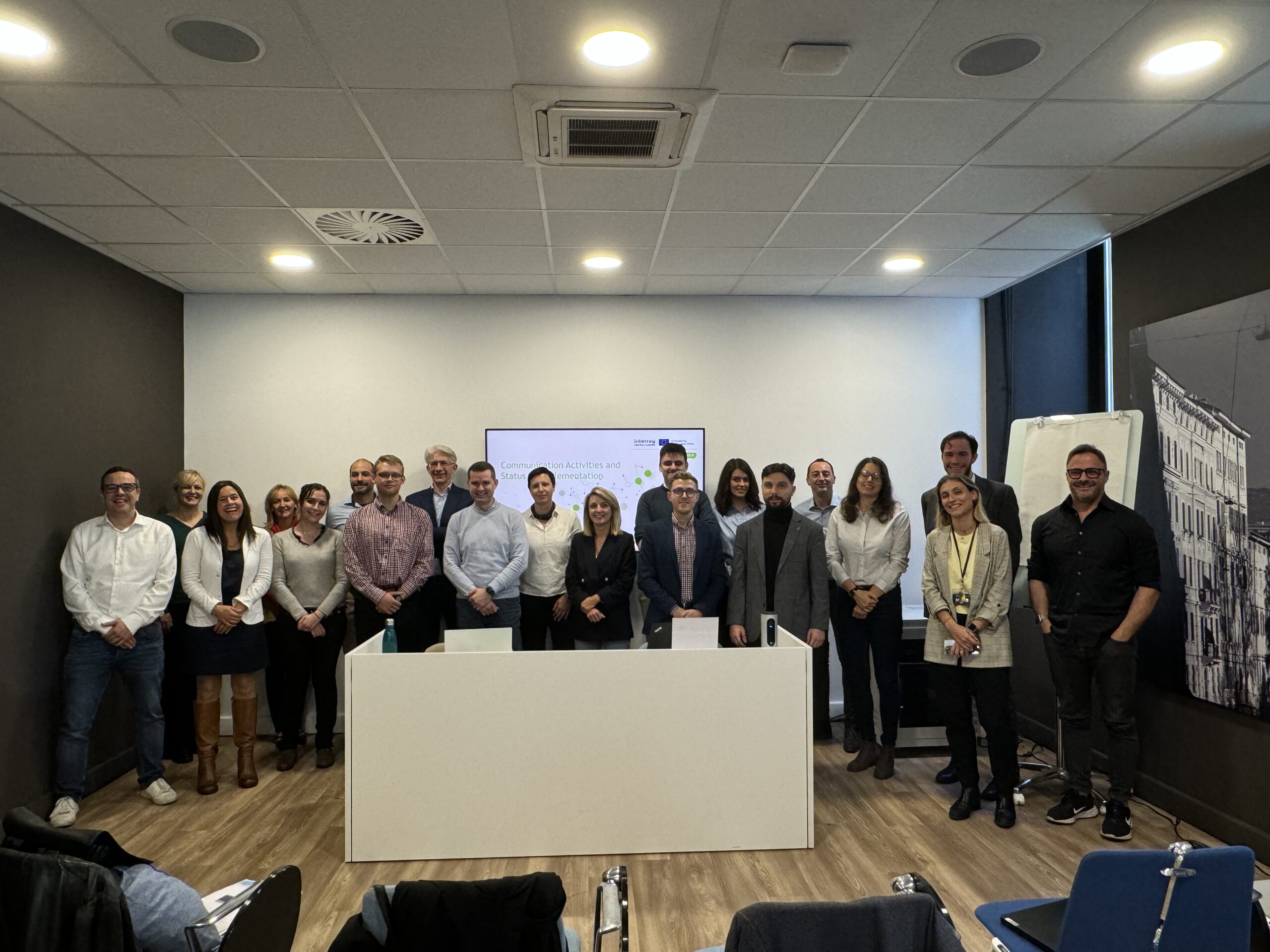On October 22, 2024, the REDU-CE-D project held its 2nd Transnational Project Meeting in Trieste, hosted by project partner Adriafer. The meeting brought together partners from across Central Europe to discuss the progress of the project, share insights, and plan for the next stages of work to improve energy efficiency in the transportation sector. The meeting began with an overview of the project’s implementation, including the status of activities and the progress of key deliverables. Partners reviewed the results of the transnational assessment and discussed the methodology for selecting and collecting best practices for energy transition in transportation. The University of Maribor led the presentation on these topics, detailing the work carried out in Activity 1.1 and Activity 1.2. A significant part of the meeting focused on the Transnational Technical Working Group (TWG) for the selection of best practices and strategic inputs, where partners presented the results of the first TWG and discussed the organization of future work. This discussion helped to define the next steps in developing a transnational strategy for energy transition, as outlined in Activity 1.4. In the afternoon, the focus shifted to the development and implementation of Environmental Management System (EMS) support packages for the transportation sector, particularly the customization of these packages for different transport modes in Central Europe. Partners engaged in a shared discussion about the customization process and the guidelines for EMS, which is crucial for the effective energy transition in the region. The session was led by ADRIAFER, who outlined the scope of Activity 2.2, with an emphasis on the next steps toward the EMS toolkit. Additionally, updates on financial reporting, project monitoring, and communication activities were presented, ensuring that partners are aligned on budget management, reporting requirements, and dissemination of the project’s outcomes. The meeting concluded with a discussion on the next steps and the planning of future events, including the upcoming meeting in Budapest, expected to take place in April/May 2025. Partners also participated in a steering committee meeting to discuss key decisions and bilateral meetings to address administrative and financial issues. The day concluded with a social dinner, hosted by Adriafer, providing an opportunity for partners to network and strengthen their collaboration. This productive meeting marked a crucial step forward in achieving the project’s objectives of advancing energy efficiency and reducing energy consumption in the transportation sector across Central Europe.
Manage Cookie Consent
To provide the best experiences, we use technologies like cookies to store and/or access device information. Consenting to these technologies will allow us to process data such as browsing behavior or unique IDs on this site. Not consenting or withdrawing consent, may adversely affect certain features and functions.
Functional Always active
The technical storage or access is strictly necessary for the legitimate purpose of enabling the use of a specific service explicitly requested by the subscriber or user, or for the sole purpose of carrying out the transmission of a communication over an electronic communications network.
Preferences
The technical storage or access is necessary for the legitimate purpose of storing preferences that are not requested by the subscriber or user.
Statistics
The technical storage or access that is used exclusively for statistical purposes.
The technical storage or access that is used exclusively for anonymous statistical purposes. Without a subpoena, voluntary compliance on the part of your Internet Service Provider, or additional records from a third party, information stored or retrieved for this purpose alone cannot usually be used to identify you.
Marketing
The technical storage or access is required to create user profiles to send advertising, or to track the user on a website or across several websites for similar marketing purposes.
